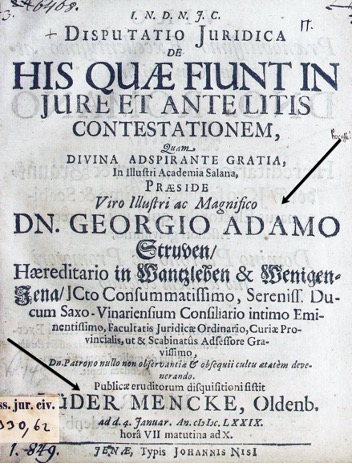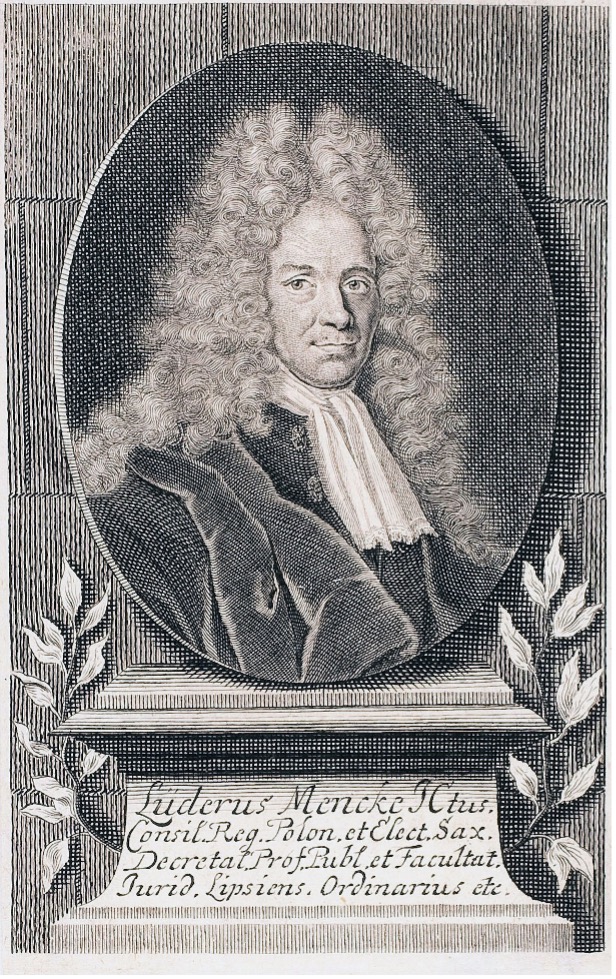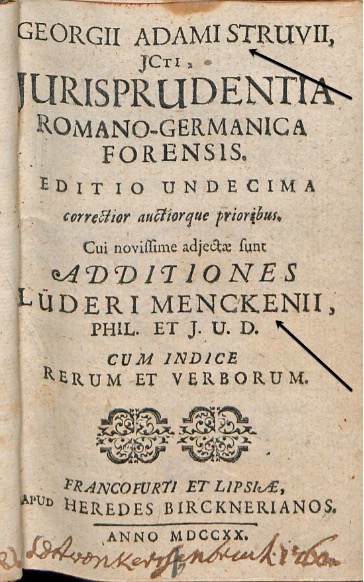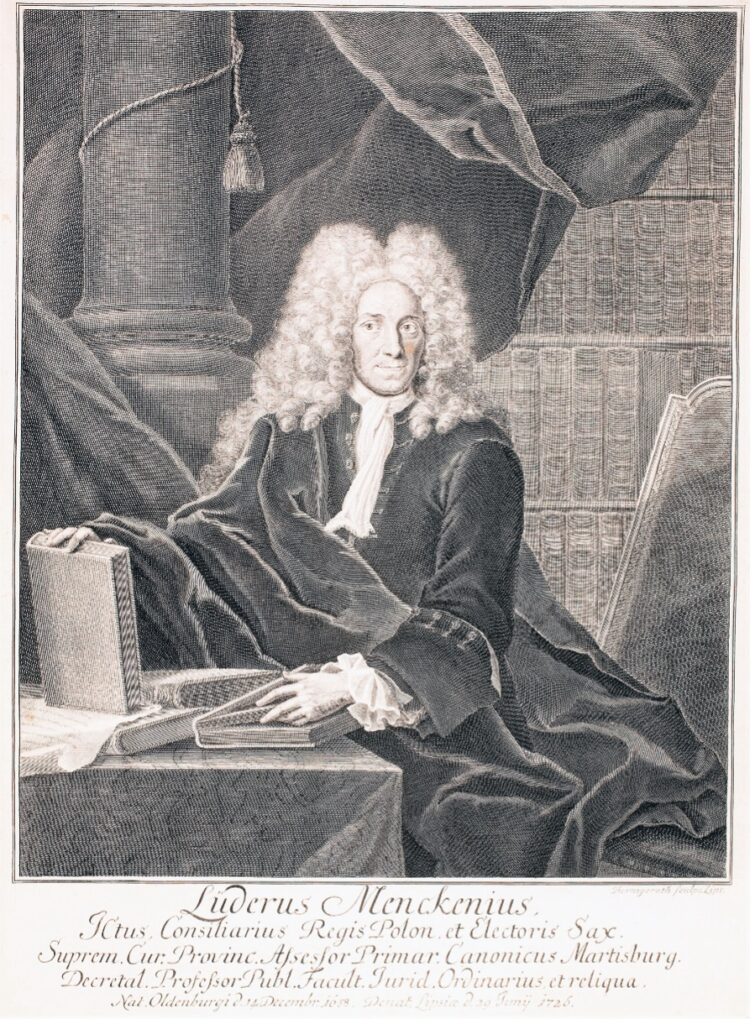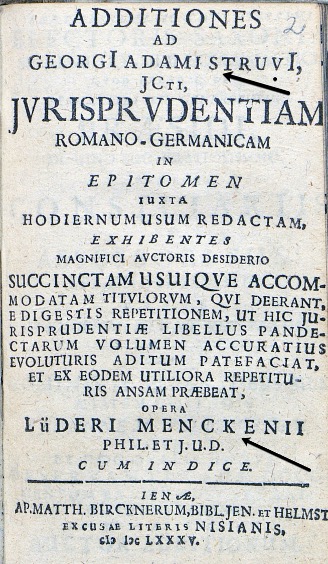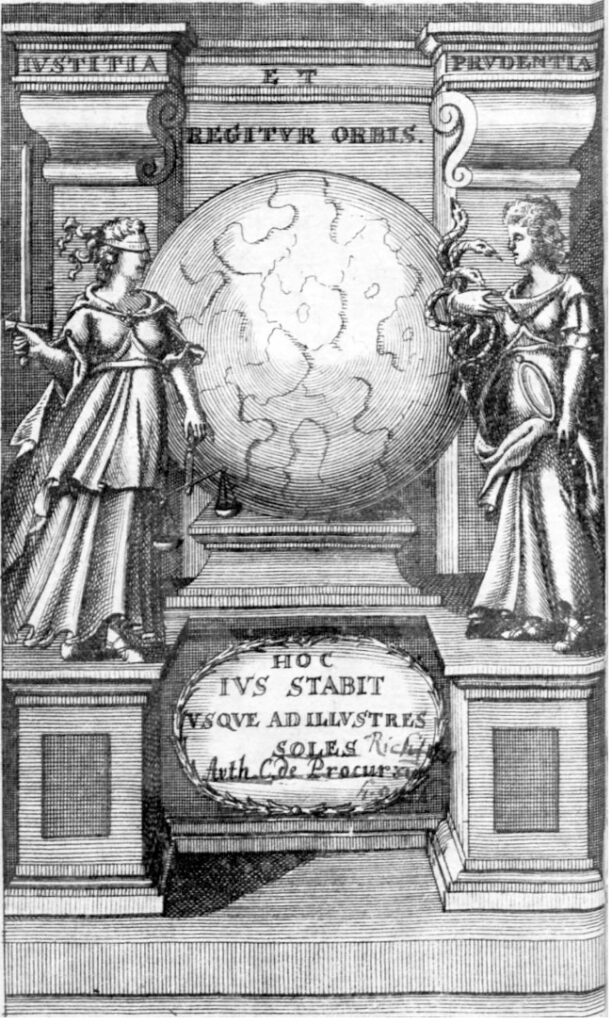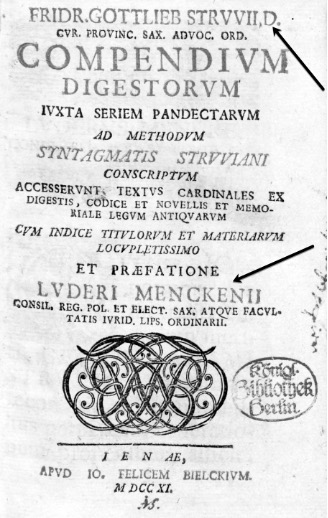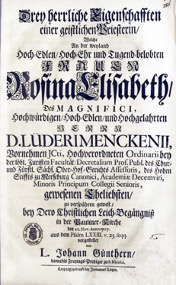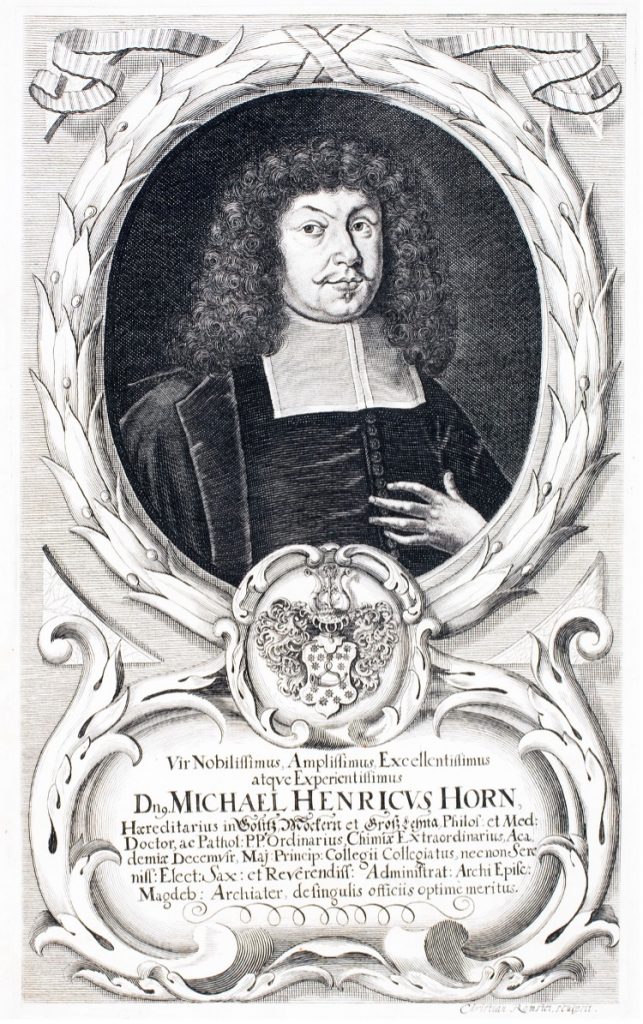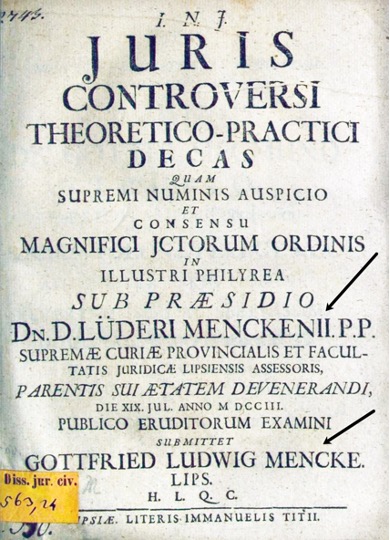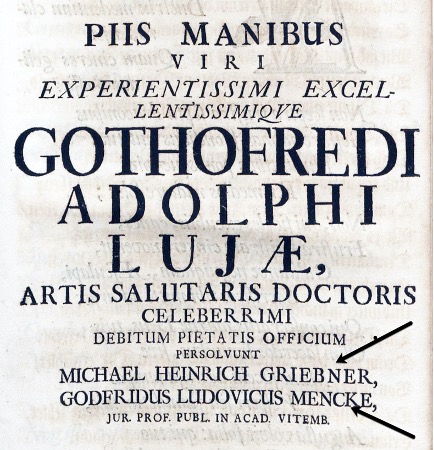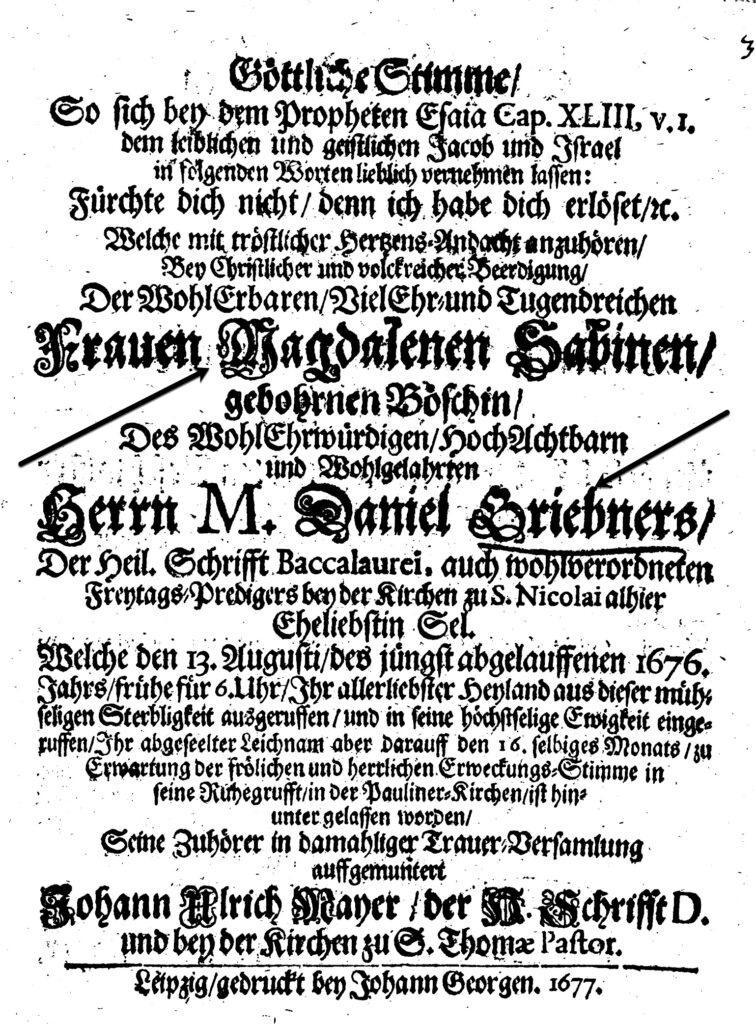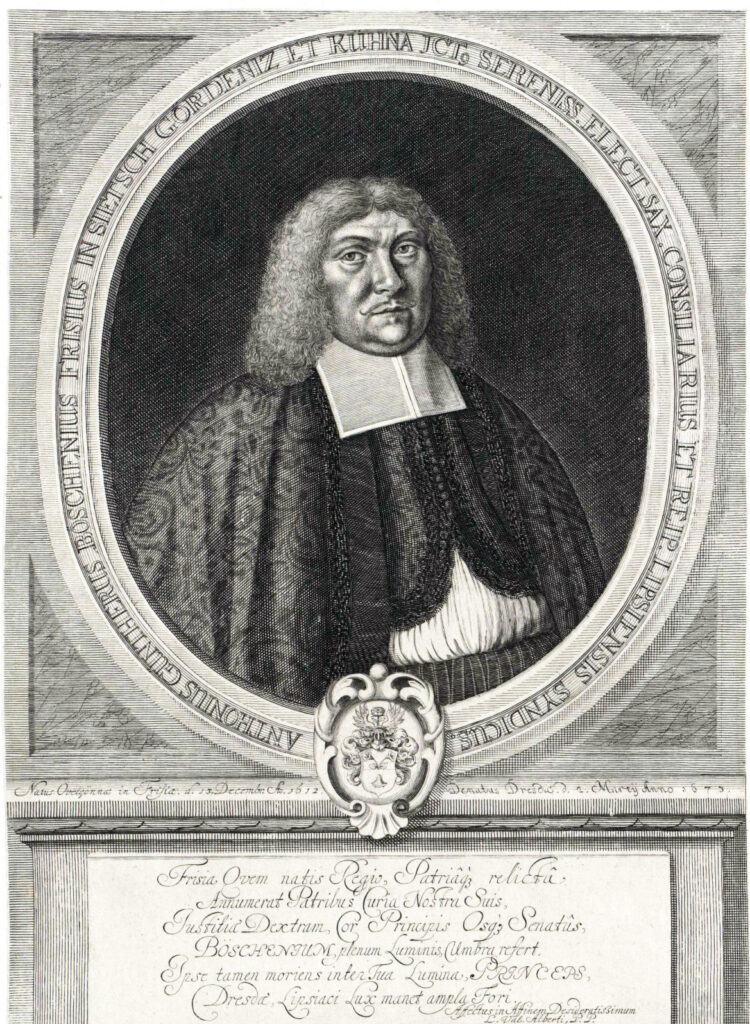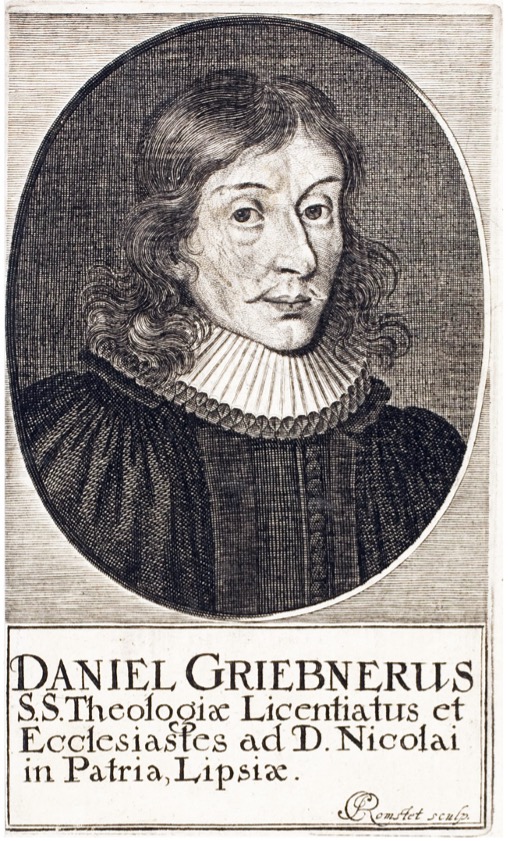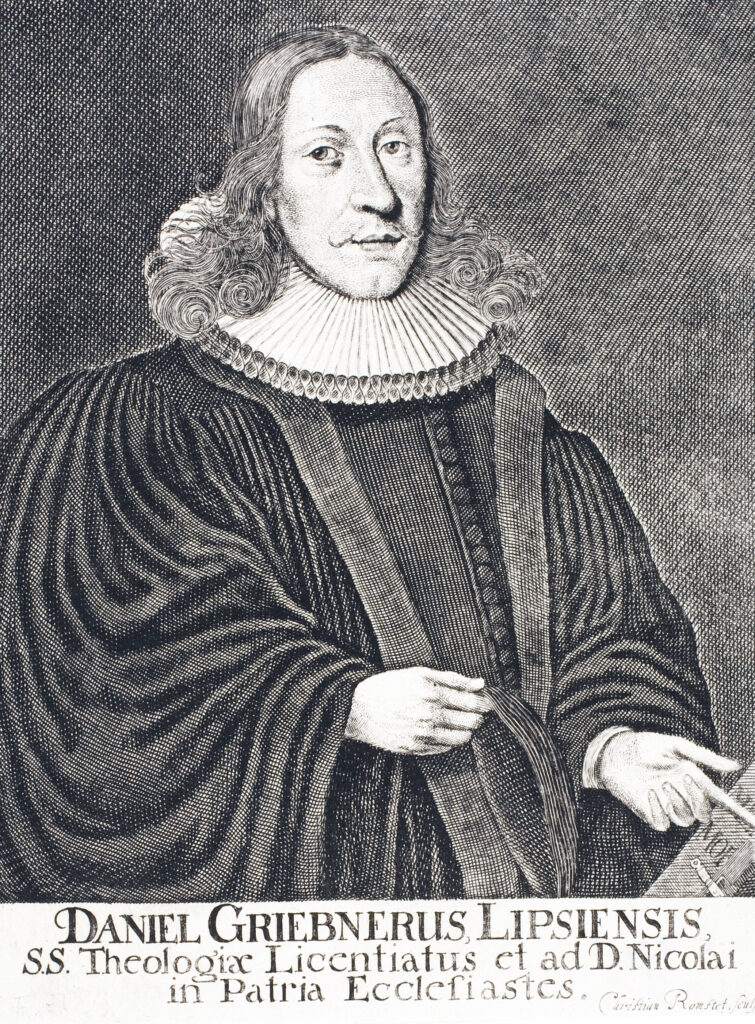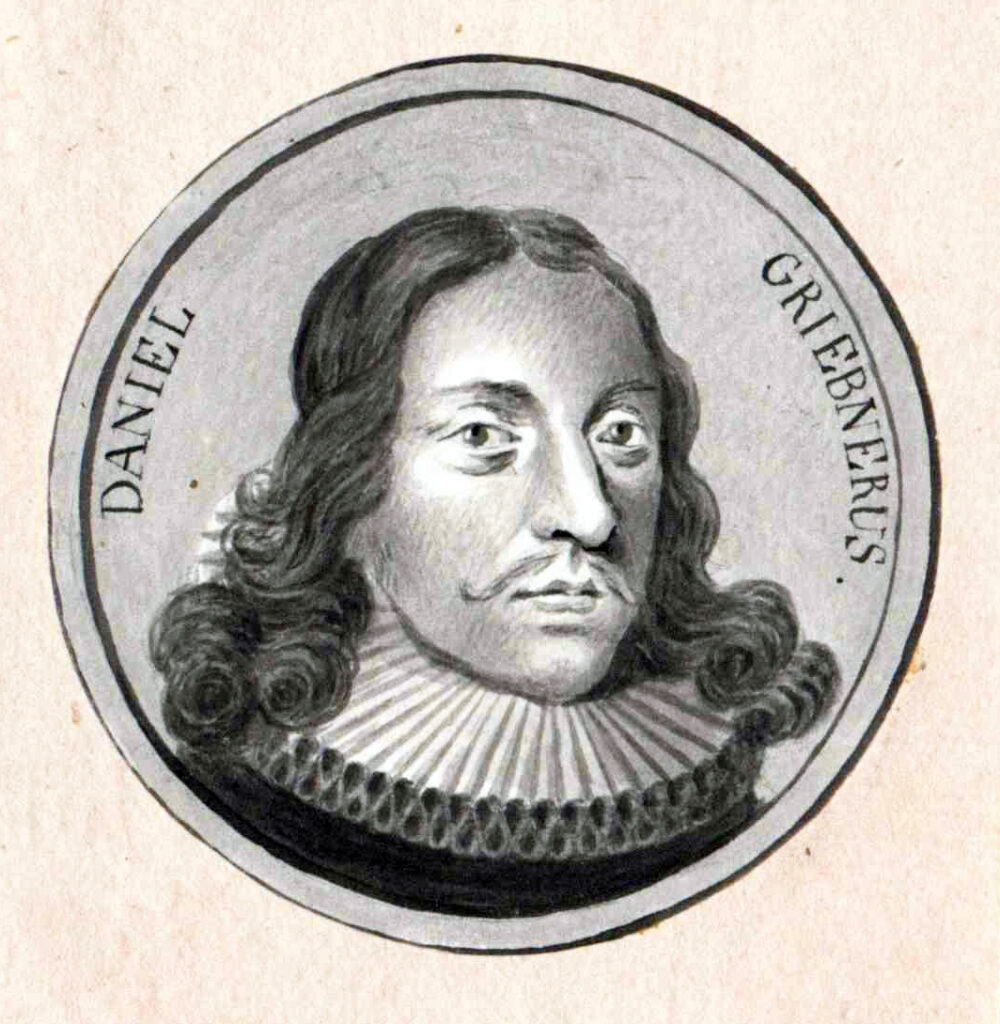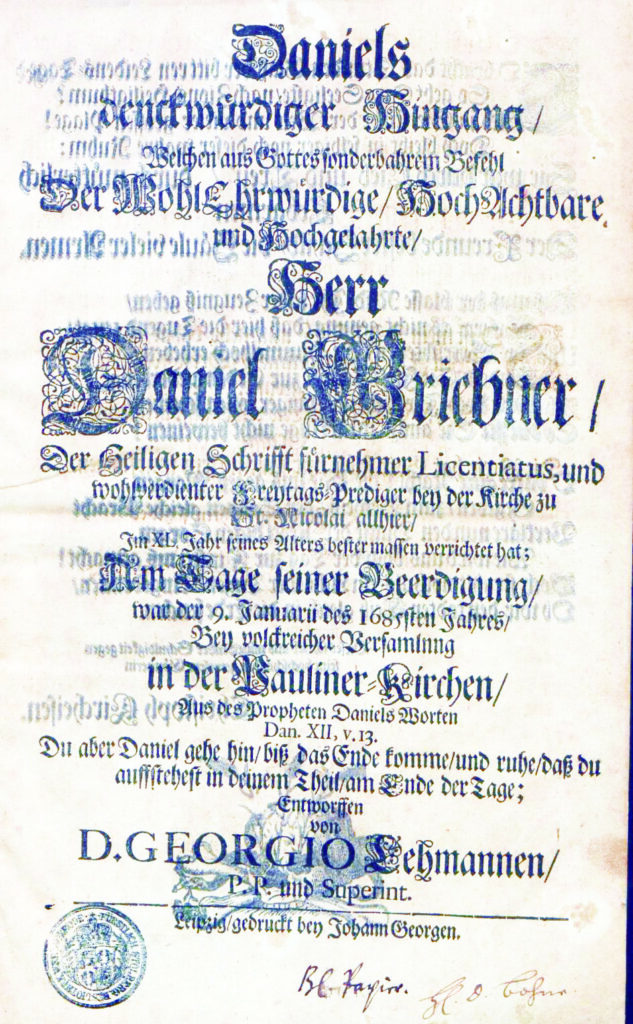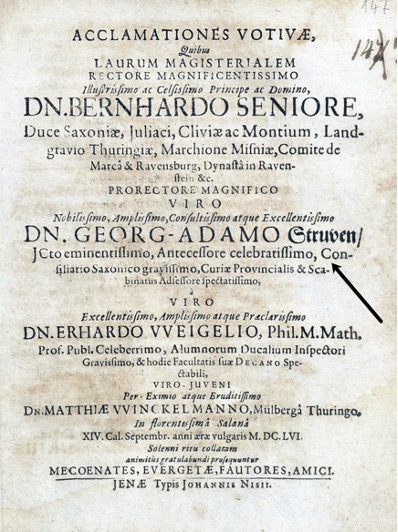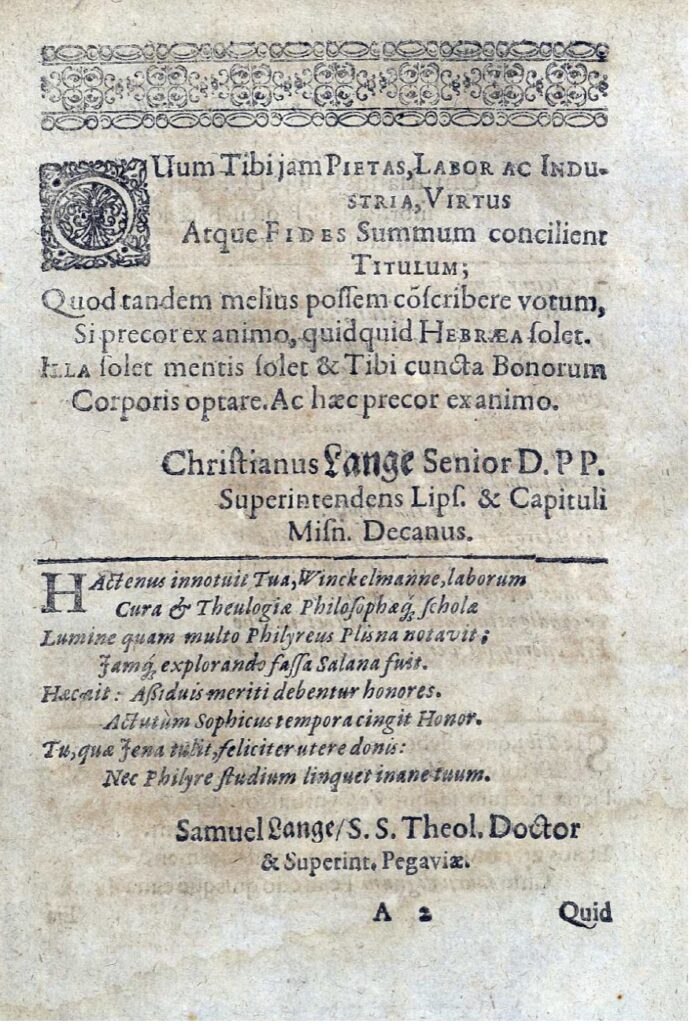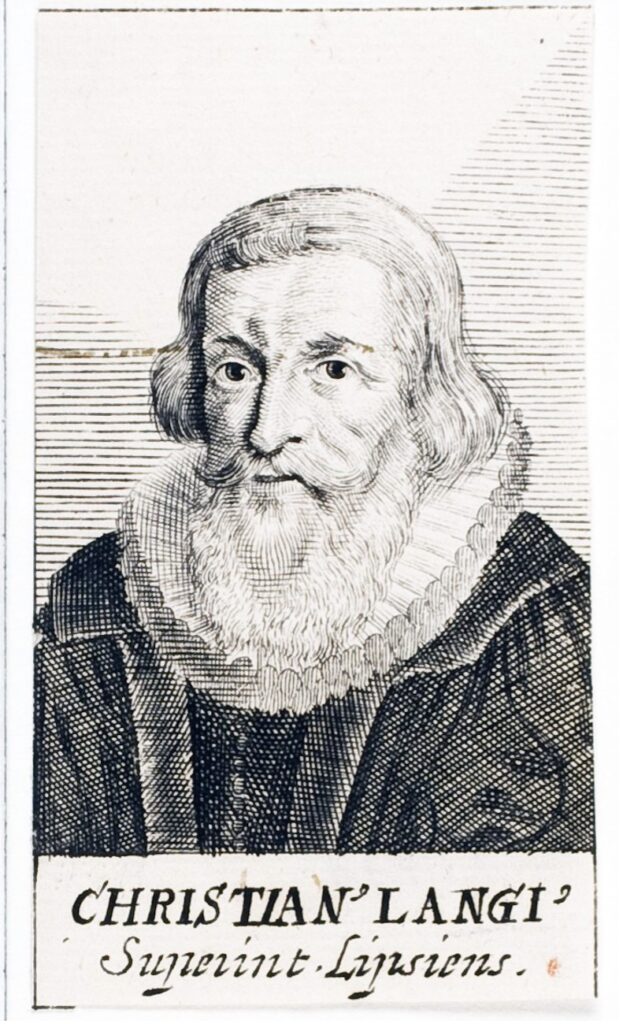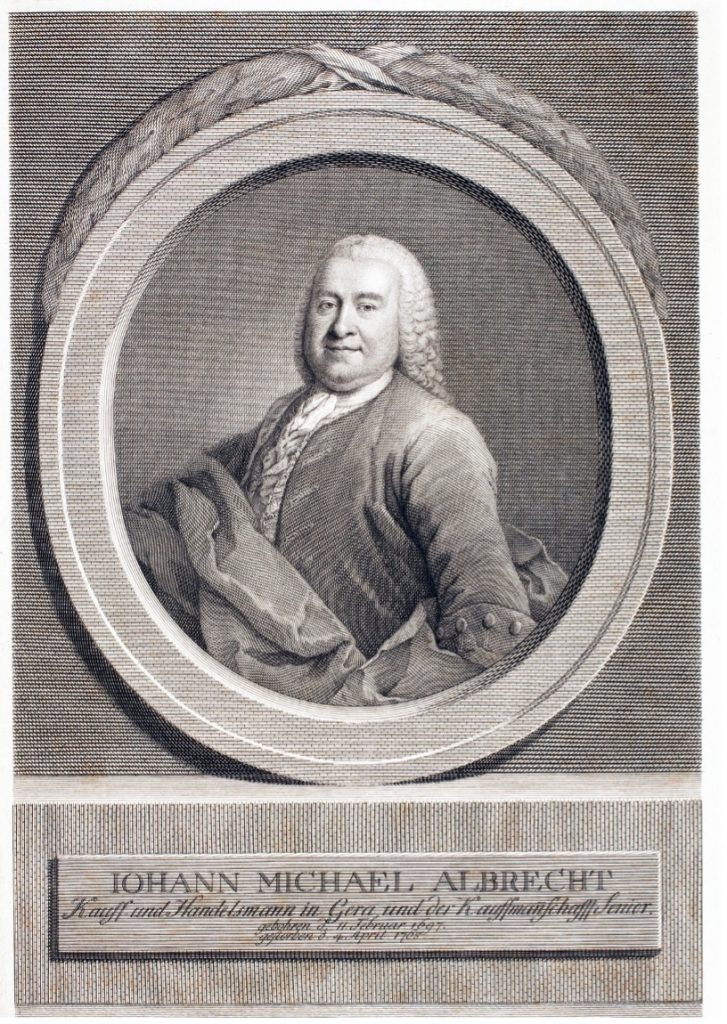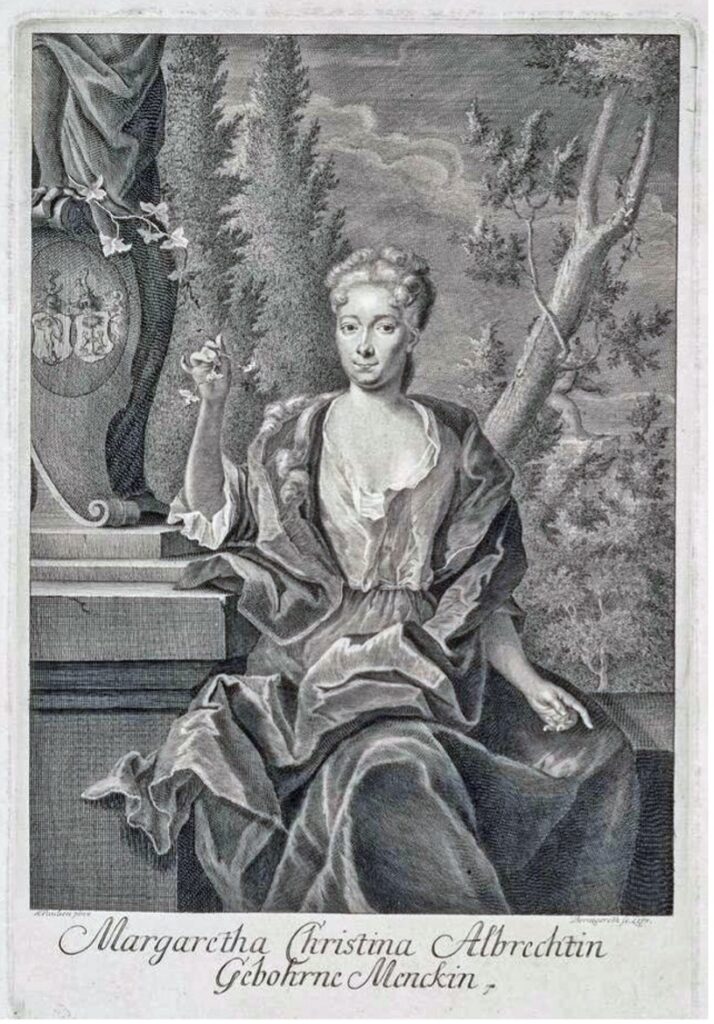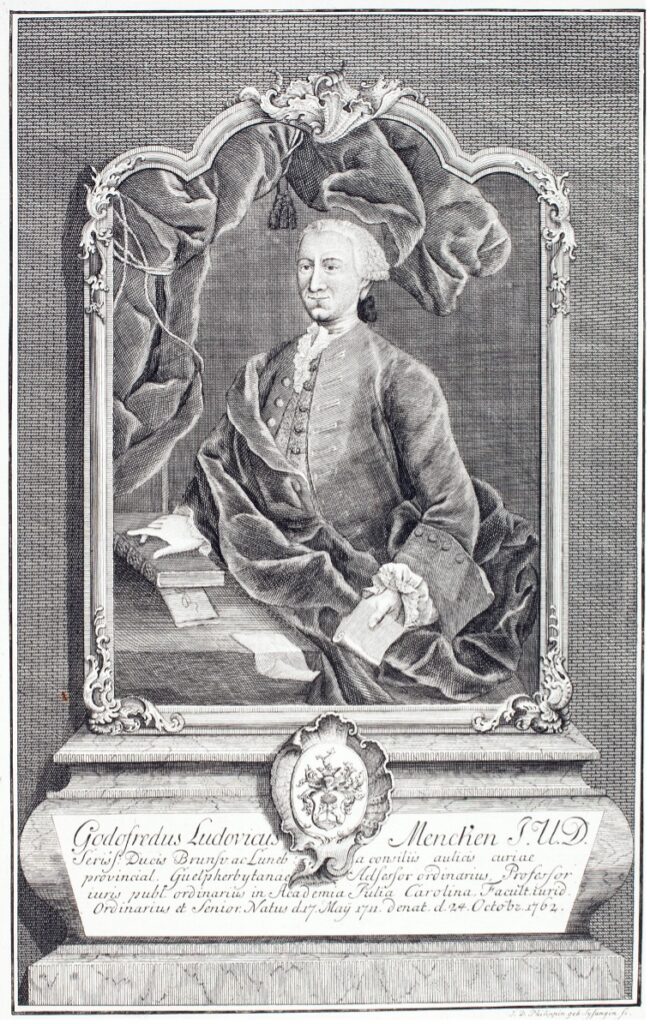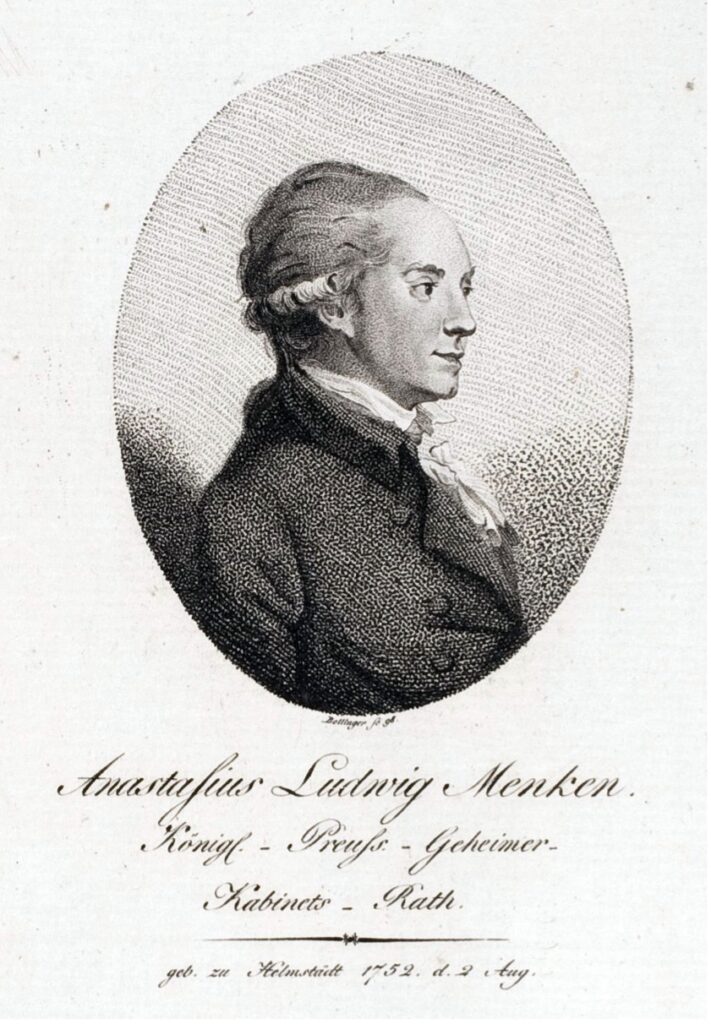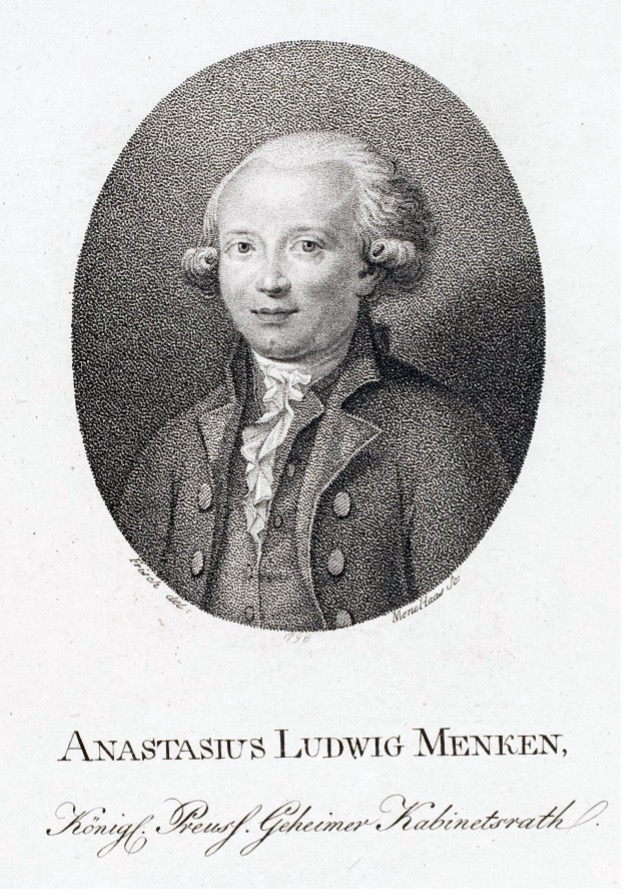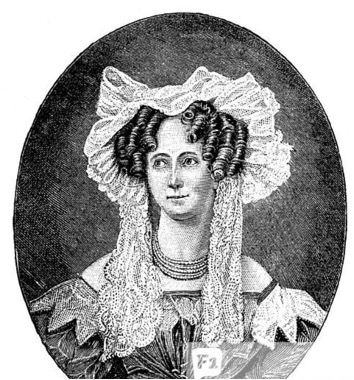Luder Mencke was the cousin of Otto Mencke who married the Three Loeck Sisters Nth great aunt Magdalena Sybilla Berlich. Therefore what follows is not about the Three Sisters’ family but one that is connected through marriage. Despite drifting further away from the main trunk of this family tree, and recognizing the section that follows as a bit of a diversion, we nonetheless continue unabated …. We should also note that the American thinker HL Mencken is a direct descendant of Luder’s.
Luder Mencke interacted with several members of the Struve family to produce together a number of legal works. For instance, Luder expanded on and elaborated two works by Georg Adam Struve’s. The first, shown below, was Disputatio Juridica De His Quae Fiunt In Jure Et Ante Litis Contestationem …
Luder also made additions to Georg Adam Struve’s – Jurisprudentia Romano-Germanica Forensis [left] Additiones Ad Georgi[i] Adami Struvi[i], ICti, Iurisprudentiam Romano-Germanicam … [right]
Luder Mencke worked with the The Loeck Sisters’ Nth grandfather [Friedrich Gottlieb Struve] on a compendium of laws under the title: Fridr. Gottlieb Struvii, Cur. Provinc. Sax. Advoc. Ord. Compendium Digestorum Iuxta Seriem Pandectarum Ad Methodum Syntagmatis [1711]. Unusual for a book of this nature it included quite an elaborate illustration opposite the title page shown below.
Luder married twice: first, Dorothea Elisabeth Truebe and second Rosina Elisabeth Horn (1659 – 1707), the daughter of Michael Heinrich Horn. On the occasion of the death of Rosina, Luder published a funeral sermon book (below left) …
One of the sons of Luder’s from his marriage to Dorothea Elisabeth Truebe, Gottfried Ludwig Mencke, authored a number of books including one (right) with Michael Heinrich Griebner.
Before she married Luder Mencke, Rosina Elisabeth Horn married Daniel Griebner / Gribner (1645 – 1685) and before Daniel married Rosina, he had married Magdalena Sabine (1651 – 1676) the daughter of Anton Gunther Böschen (1612 – 1673) (below right). Magdalene Sabina Boschen died in 1676 and a funeral book was published Göttliche Stimme So sich bey dem Propheten …
Daniel Griebner was a son of the German lawyer and councilor Zacharias Griebner (1601-1659). He studied in Leipzig and Wittenberg, and then resided in Lüneburg and Hamburg. He returned to Leipzig and became a substitute, then a deacon at the Nikolaikirche. In this position he acquired the degree of licentiate in theology. Below, three images of Daniel Griebner:
Daniel and Magdalene Sabina (Boschen) Griebner had two sons: Michael Heinrich Griebner (1682 – 1734) and Johann Sigismund Griebner (1683 – 1742).
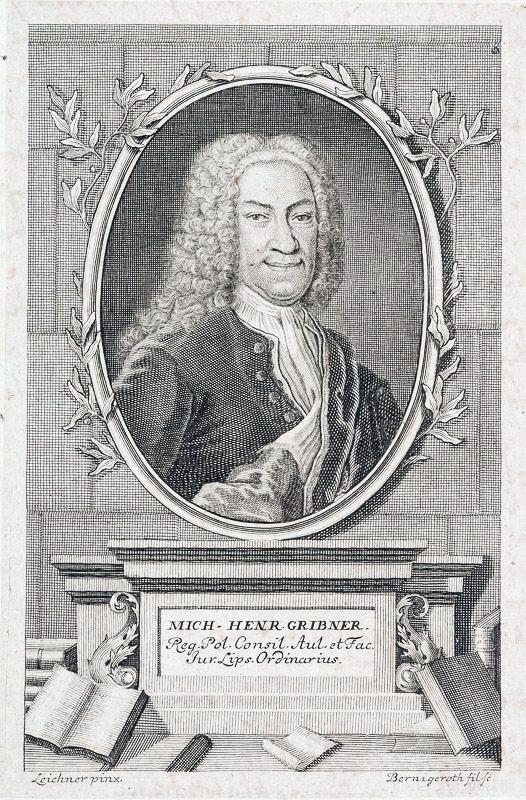
The Three Loeck Sisters’ Nth great uncle, Burchard Gotthelf Struve, the son of Georg Adam Struve, co-authored a book with Michael Heinrich Gribner / Griebner:
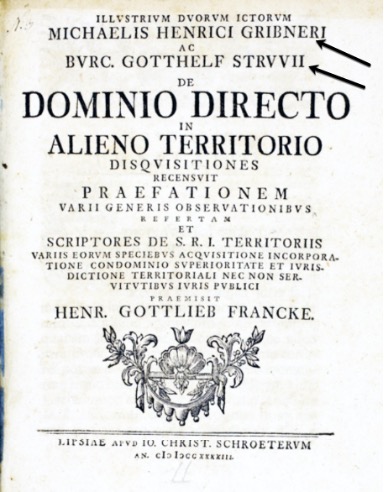
The publication below celebrating Georg Adam Struve, Acclamationes Votivae, Quibus Laurum Magisterialem Rectore Magnificentissimo [1656], contains three contributions by persons indirectly connected to Struve via a series of marriages: Sigismund Rupert Sulzberger, Adam Teller, and Christian Lange. Sigismund Rupert Sulzberger is very indirectly connected to Luder Mencke’s wife Rosina Elisabeth Horn (see chart) as follows: Magdalene Sabine Boschenm (1651 – 1676), the first wife of Daniel Griebner, had a sister Sophia Elisabeth Boschen (1650 – 1686) who married first, Johann Sigmund Sulzberger and second, Thomas Ittig (1643 – 1710). Johann Sigismund and Sophia Elisabeth (Boschen) Sulzberger had a son Johann Rupert who in turn had a son Sigismund Rupert Sulzberger (1628 – 1675) who contributed to Acclamationes Votivae and who married Margarethe Lange (1629 – 1700) whose father Christian Lange (1585 – 1657) also contributed to Acclamationes Votivae …
Luder Mencke and his first wife Dorothee Elisabeth Truebe had a daughter Margaretha Christina (1696 – 1721) who married Johann Michael Albrecht in 1720; both of whom are show below:
GOTTFRIED LUDWIG MENCKE (the elder) (1683 – 1744) and GOTTFRIED LUDWIG MENCKE (the younger) (1712 – 1762) and the descent to Bismark:
We know little about Gottfried Ludwig Mencke the Elder and his wife Christiane Marie Zoller although he did leave a bibliographic record but we do have more on his son,
Born the son of Gottfried Ludwig Mencke the Elder and Christiane Marie Zoller, Gottfried Ludwig Mencke the Younger was first trained by private tutors. After being enrolled at the University of Wittenberg on June 13, 1721, he studied there under his father and gave legal lectures in 1734. On July 13, 1737, he received his doctorate under his father for a doctor of law, and from 1740 he lawyered at the Saxon court and at the Leipzig spiritual consistory. From 1744, he gave legal lectures at the University of Leipzig and became an associate professor in 1748. In 1749 he received a call from Duke Karl von Braunschweig as a full professor of rights, court councilor and assessor at the law faculty of the University of Helmstedt. In 1755 he became a regular assessor of the court in Wolfenbüttel and full professor of the law faculty of the Helmstedter Akademie. His son was Anastasius Ludwig Mencken, the Prussian cabinet chief, and great-grandfather of the German Chancellor, Otto von Bismarck and ancestor of the American H L Mencken.
Anastasius Ludwig Mencken (1752 – 1801)
Anastasius Ludwig Mencke graduated from the city school in Halle and studied law in Helmstedt and Leipzig. Immediately before the Rigorosum, he fled Helmstedt in 1775 and went to Berlin. There he worked as a private tutor for the wealthy family of the legal consultant and mayor Christian Ludwig Troschel. An appointment as a teacher at the Berlin Knight Academy, which Mencken had been promised, failed in 1776 due to an objection by the Minister Ewald von Hertzberg. Instead, Mencken was accepted into the diplomatic school of the Pépinière.
In May 1777 he went to Stockholm as legation secretary, in autumn 1777 and September 1779 he was interim head of the Prussian legation in Sweden. He mediated skillfully in a conflict between the Swedish King Gustav III. and his mother Ulrike (a sister of the Prussian King Friedrich II.) and was also active as a mediator between Ulrike and Friedrich. This earned him the goodwill of the Swedish royal family. In March 1782 he was recalled to Berlin and, at the suggestion of the cabinet minister Count von Finckenstein, was appointed secret cabinet secretary of Frederick the Great. His task was to (de) encrypt diplomatic correspondence and later to draft his own dispatches and cabinet orders on behalf of the king. With his talent in this field, Mencken won the full confidence of Friedrich, who awarded him an unusually high salary.
When Frederick the Great died, his successor, Frederick William II, appointed Mencken to the secret war council. According to the historian Hermann Hüffer, Mencken was “the most intellectually important” of the king’s cabinet councilors. However, the politically liberal and enlightened-rationalist Mencken temporarily lost his influence to favorites of the new king such as Johann Christoph von Woellner. Nevertheless, he accompanied Friedrich Wilhelm to the Congress of Reichenbach in 1790 and to the headquarters of the French campaign in 1792 (First Coalition War).
Mencke considered the ideas of the French Revolution – in a moderate form – to be applicable and desirable for Prussia, which exposed him to suspicion of “Jacobin sentiments”. He fell out of favor and retired to Potsdam in December 1792. Financially independent due to the wealth of his wife, he devoted himself to political science and philosophical studies.
Since Friedrich Wilhelm could not do without the administrative talent of Anastasius Ludwig Mencke, he entrusted him in December 1796 with the task of working out the administrative organization of the Prussian provinces of South Prussia and New East Prussia, which were won as a result of the second and third partition of Poland (1793 and 1795). Mencken took the chance and built into his concept modern administrative methods based on the French model.
In the last years of his life he served under King Friedrich Wilhelm III. from his accession to the throne in 1797 to Mencken’s resignation due to illness in 1800 as first cabinet councilor. In this position he again had considerable influence on Prussian politics. The cabinet regulations of this time show a liberal and humane attitude, but are also “verbose and unclear” (Paul Bailleu). He developed the basics of further reform projects that were later implemented.
